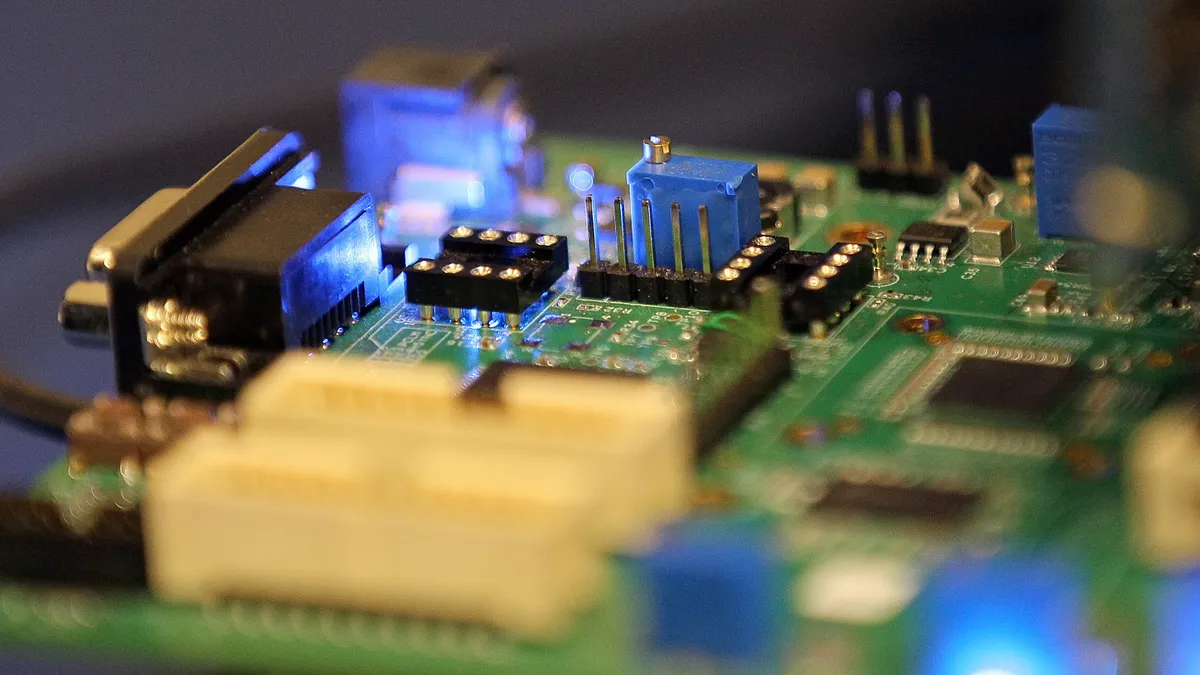Following two years of congressional gridlock and two different bills, the House of Representatives on Thursday passed the CHIPS Act, which doles out $52 billion to semiconductor manufacturers looking to expand their presences in the U.S.
The 243-187 vote was broadly across party lines, with Democrats voting to advance the bill and all but 24 Republicans voting to defeat the legislation. On Wednesday, the Senate passed the bill in a 64-32 vote.
Massive manufacturing-related construction projects in the U.S. are depending on CHIPS Act funding in order to move forward. Thomas Sonderman, president and CEO of Minnesota-based SkyWater Technology, said the company’s $1.8 billion semiconductor plans hinged on CHIPS Act funding. Samsung, the South Korea-based electronics company, proposed 11 chip plants worth a whopping $191 billion in Texas, also dependent on the CHIPS Act passage.
Other manufacturing projects leaning on CHIPS Act funding to move forward include:
- Intel’s $20 billion facility in Licking County, Ohio.
- GlobalFoundries chip factory in Malta, New York.
- Micron Technology manufacturing expansion in Boise, Idaho.
- Taiwan Semiconductor Manufacturing Company’s $12 billion computer chip factory in Arizona.
The CHIPS Act, and the $52 billion that goes with it, are hitching a ride on a much larger bill that has grown exponentially prior to the Senate debate and vote. The 1,000-page CHIPS & Science Act also includes provisions dedicated to science and research across different disciplines outside of just construction for $200 billion, according to the Wall Street Journal. In total, $280 billion in funding is tied to the legislation.
The bill will now make its way to President Joe Biden, who has been vocal about its passage. On Monday, Biden met with business leaders virtually and demanded that Congress act on the legislation, citing both economic growth opportunities and a need to compete with China in the semiconductor field. Following news of the Senate’s passage of the bill, the administration urged the House to move quickly.
Biden was meeting with business leaders again on Thursday when his session was interrupted by news of the bill’s passage.
“By making more semiconductors in the United States, this bill will increase domestic manufacturing and lower costs for families. And, it will strengthen our national security by making us less dependent on foreign sources of semiconductors,” Biden said in a statement Thursday.
















